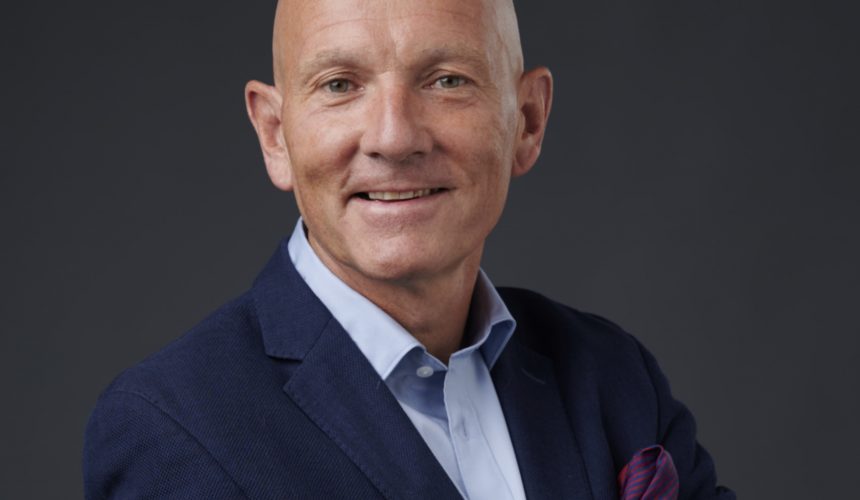Extracts from talk delivered to AAAN 2021 Business Outlook webinar
Let me just begin by saying that after four years in Lagos that I remain even more optimistic about the future of advertising both here in Nigeria and across Africa. With a population of 1.3 billion adults, the single largest opportunity for advertising in Africa is the rising consumer market.
Where there are consumers then there are advertisers who want to sell and that should mean more opportunities for all our respective businesses, shouldn’t it? Those of us in commercial traditional media know only too well that advertisers are investing more budgets in new media and that of course puts commercial pressure on us.
As broadcasters we have to better understand these consumers of new media and their consumption habits. We know they tend to be among the youngest in the World, concentrated in urban centres, from smaller families, better educated, higher earning and especially digital savvy.
They have a great affinity for tech and despite a lack of access to smart phones and general poor Internet connectivity they are using download sites for access to news and entertainment. Nearly 60% of millennials are now using social media for their news and young consumers want their news and entertainment on the go. I believe that all advertising stakeholders will have our futures affected by new media consumption habits.
Media owners appreciate that the convergence of digital and traditional advertising is real and is happening right now and we have to act accordingly and indeed many of us do act accordingly.
For instance, with dual screen media consumption this now means that at TVC Communications all of our broadcast content and output must work for a linear and digital audience. We take our most popular programmes and we strategize digital as well as linear in all of our editorial plans. When the studio lights are turned off and a linear episode ends then we try to figure out how to extend that show online and give our advertising partners greater reach from their campaigns booked with us. The positive is that digital for us means more advertiser opportunities for products and campaigns via online be that: product placement, brand celebrity appearances, greater audience engagement, competitions, giveaways, and phone ins. In this New Digital World there is less regulation and restrictions around creativity. The only constraint now is to deliver quality and engaging branded content for a young savvy audience who will not be fooled by overt advertising and overt sales pitches. Media planning and media buying practises will be affected by ad tech and more innovation.
As a media owner I have to understand that new media innovations are going to impact on media agencies and I need to make sure I do not lose out. Programmatic planning and buying is in vogue, recently Wavemaker (part of Group M) launched MAXIMISE their AI planning tool and a World first being tested in Ireland. I must understand how these media planning and buying advancements are going to impact on my business and my share of advertising budgets.
It appears that my commercial airtime will be part of an auction and treated as a commodity to be traded in the cloud, the question then is who do I sell to and how will we better engage around creative media solutions? Advertisers and creatives will be impacted by new data.
There is an abundance of consumer data available. Adverts are going to be personalized further. Much of the changes being brought about with new media is attributed to new technology and more consumer data. Data is helping advertisers and creatives to access insights that were previously impossible, and that’s leading to a greater degree of personalization in advertising campaigns.
So as business people working in advertising we must understand that while the goals of advertising might remain the same as in times past that there is a new order and new entrants are coming into our industry offering new services to advertisers and to new media consumers. These new entrants seem better equipped to immediately “take the ball and run” in this New Media World. Those of us classed as “traditional” whether media owner or advertising agency must up skill ourselves to meet these changes.
That is fine, I have no worries with this development, we all know that no matter what walk of life we are in that “if we stand still then we are history”. We must change with the times if we want to remain relevant to new consumers. The big advantage the traditional players in advertising have over new entrants is our heritage and our experiences so let’s not be afraid to embrace these very exciting changes and opportunities in advertising.
As I said at the start of this article I remain very optimistic. I believe traditional broadcast media still has much to offer advertisers and consumers and will remain very relevant especially in Africa for a long time to come. We saw during lockdown that TV especially FREE TV and radio still delivers massive and engaged audiences for advertisers. Our challenge is to make the strengths of traditional media work in conjunction with the new media and changing consumer consumption habits.
Ronan Redmond is the Chief Revenue Officer, Media & Advertising, Africa.






Comment
No comments found.